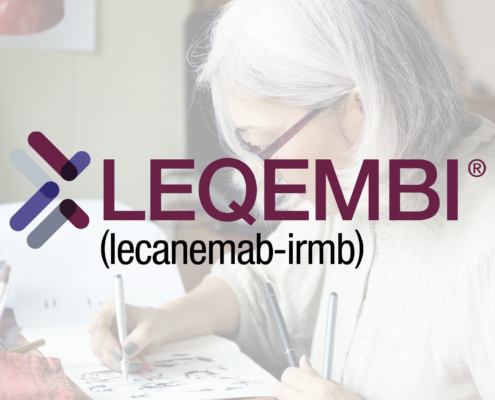Leading Alzheimer’s Treatments: What’s New and What’s Next
Alzheimer’s affects millions of people worldwide, making it one of the most pressing health challenges of our time.
Alzheimer’s affects millions of people worldwide, making it one of the most pressing health challenges of our time.

While there’s still no cure, recent breakthroughs in treatment offer new hope. This guide explores the latest developments in leading Alzheimer’s treatments, their effectiveness, and what’s coming next in the fight against this complex disease.
For years, the primary goal of Alzheimer’s treatment has been managing symptoms rather than halting disease progression. These FDA approved Alzheimer’s medications can temporarily improve memory, thinking, and overall function:
These treatments don’t alter the course of Alzheimer’s but can help patients function more independently for longer.
Recent years have brought the first leading Alzheimer’s treatments aimed at slowing disease progression, rather than just managing symptoms.
The first FDA-approved amyloid-clearing therapy. Its approval was controversial due to questions around clinical benefit, but it set the stage for other biologics.
Similar mechanism to Leqembi but administered monthly. Early data suggests faster amyloid clearance in some patients.
These biologics represent a shift toward disease-modifying treatments, though they require close monitoring and are only suitable for patients in early stages of Alzheimer’s.
Medications aren’t the only tools available to patients and caregivers. Lifestyle changes can play a vital role in supporting brain health.
These interventions work best when combined with medical treatment and can improve quality of life at every stage of Alzheimer’s.
| Treatment Type | Examples | Primary Goal | Side Effects | Eligibility |
| Symptom Management | Donepezil, Memantine | Improve memory and cognition | Nausea, dizziness | Mild to severe Alzheimer’s |
| Disease Modification | Leqembi, Donanemab | Slow disease progression | ARIA, infusion reactions | Early Alzheimer’s only |
| Lifestyle Interventions | MIND diet, exercise, therapy | Support overall brain health | Minimal | All stages |
Choosing the best treatment for Alzheimer’s depends on the stage of the disease, overall health, and access to therapies.
Alzheimer’s research is entering an exciting new chapter, with scientists pursuing innovative approaches to slow, stop, or even prevent the disease. These breakthroughs offer hope for more personalized and effective care in the years ahead.
The success of biologics like Leqembi has paved the way for next-generation treatments targeting the same amyloid-beta protein more efficiently and with fewer side effects.
Often described as a “second-generation” amyloid immunotherapy, Remternetug is designed to clear amyloid plaques from the brain faster than its predecessors. Early clinical trial data suggests it may achieve significant plaque reduction in as little as six months, compared to 18 months for earlier drugs like Donanemab.
While amyloid plaques have been a primary focus for decades, researchers are increasingly turning their attention to tau tangles, another hallmark of Alzheimer’s disease. These abnormal clumps of tau protein disrupt communication within neurons and may play a key role in cognitive decline. Drugs in development aim to block tau from aggregating or help the body clear these tangles, offering a potential new frontier in treatment.
Sometimes, existing medications surprise researchers with new applications.
Best known as a diabetes and weight-loss drug, Semaglutide is now being studied for its potential neuroprotective effects. Researchers believe it may improve insulin sensitivity in the brain and reduce inflammation—factors that could slow Alzheimer’s progression. If proven effective, Semaglutide could become a convenient, widely available option for early intervention.
Preventing Alzheimer’s before it begins is one of the field’s most ambitious goals.
Trials are underway for vaccines designed to train the immune system to recognize and clear amyloid-beta or tau proteins before they cause damage. If successful, these vaccines could become a key preventive tool for high-risk populations.
Chronic brain inflammation is increasingly recognized as a driver of Alzheimer’s progression. Medications like sargramostim (Leukine) are being studied for their ability to modulate the immune system and protect brain cells from inflammatory damage.
In the near future, Alzheimer’s care may look very different thanks to advances in precision medicine.
Tests like APOE genotyping can identify individuals at higher genetic risk for Alzheimer’s and help physicians personalize treatment plans. For example, certain biologics may carry a higher risk of brain swelling in patients with the APOE4 gene, making genetic insights crucial for informed decision-making.
Emerging diagnostic tools could allow doctors to detect Alzheimer’s-related changes in the brain years before symptoms appear. This would enable earlier and more targeted interventions, giving patients a better chance at slowing disease progression.
Navigating leading Alzheimer’s treatments is overwhelming, but patients and caregivers don’t have to do it alone. Working with specialists (neurologists, geriatricians, memory clinics) ensures you explore every option, from established therapies to clinical trials.
At every step, combining the latest technology with emotional and social support is key to improving outcomes and maintaining dignity.
The landscape of Alzheimer’s treatment is changing. While there’s no cure yet, today’s options are more promising than ever, and tomorrow’s breakthroughs could be life-changing.
At Daugherty Enterprises, we’re committed to supporting families with clear, compassionate information about Alzheimer’s care. Together, we can create a future where those affected by this disease feel informed, empowered, and never alone.
 https://daughertyenterprises.com/wp-content/uploads/2025/09/Why-Cognitive-Engagement-Matters.jpg
1250
2000
Abstrakt Marketing
/wp-content/uploads/2025/03/Daugherty-Foundation-Logo.png
Abstrakt Marketing2025-09-26 09:00:082025-11-30 09:50:04Alzheimer’s Prevention: Why Cognitive Engagement Matters More than Ever
https://daughertyenterprises.com/wp-content/uploads/2025/09/Why-Cognitive-Engagement-Matters.jpg
1250
2000
Abstrakt Marketing
/wp-content/uploads/2025/03/Daugherty-Foundation-Logo.png
Abstrakt Marketing2025-09-26 09:00:082025-11-30 09:50:04Alzheimer’s Prevention: Why Cognitive Engagement Matters More than Ever https://daughertyenterprises.com/wp-content/uploads/2025/09/Understanding-Leqembi.jpg
1250
2000
Abstrakt Marketing
/wp-content/uploads/2025/03/Daugherty-Foundation-Logo.png
Abstrakt Marketing2025-09-22 08:51:502025-11-30 09:50:04Understanding Leqembi: A Potential Breakthrough in Alzheimer’s
https://daughertyenterprises.com/wp-content/uploads/2025/09/Understanding-Leqembi.jpg
1250
2000
Abstrakt Marketing
/wp-content/uploads/2025/03/Daugherty-Foundation-Logo.png
Abstrakt Marketing2025-09-22 08:51:502025-11-30 09:50:04Understanding Leqembi: A Potential Breakthrough in Alzheimer’s https://daughertyenterprises.com/wp-content/uploads/2025/09/An-Overview-of-the-U.S.-POINTER-Trial-Results.jpg
1250
2000
Abstrakt Marketing
/wp-content/uploads/2025/03/Daugherty-Foundation-Logo.png
Abstrakt Marketing2025-09-10 09:26:172025-11-30 09:50:04An Overview of the U.S. POINTER Trial Results
https://daughertyenterprises.com/wp-content/uploads/2025/09/An-Overview-of-the-U.S.-POINTER-Trial-Results.jpg
1250
2000
Abstrakt Marketing
/wp-content/uploads/2025/03/Daugherty-Foundation-Logo.png
Abstrakt Marketing2025-09-10 09:26:172025-11-30 09:50:04An Overview of the U.S. POINTER Trial Results https://daughertyenterprises.com/wp-content/uploads/2025/04/Medical-researcher-looking-at-data-on-computer.jpg
1250
2000
Xander Killebrew
/wp-content/uploads/2025/03/Daugherty-Foundation-Logo.png
Xander Killebrew2025-04-30 11:02:572025-11-30 09:50:07The Role of Machine Learning in Alzheimer’s Treatment and Drug Discovery
https://daughertyenterprises.com/wp-content/uploads/2025/04/Medical-researcher-looking-at-data-on-computer.jpg
1250
2000
Xander Killebrew
/wp-content/uploads/2025/03/Daugherty-Foundation-Logo.png
Xander Killebrew2025-04-30 11:02:572025-11-30 09:50:07The Role of Machine Learning in Alzheimer’s Treatment and Drug Discovery https://daughertyenterprises.com/wp-content/uploads/2025/04/Two-researchers-looking-at-brain-scans-on-computer.jpg
1250
2000
Xander Killebrew
/wp-content/uploads/2025/03/Daugherty-Foundation-Logo.png
Xander Killebrew2025-04-30 10:33:342025-11-30 09:50:07Looking Into the Future: AI in Alzheimer’s Research
https://daughertyenterprises.com/wp-content/uploads/2025/04/Two-researchers-looking-at-brain-scans-on-computer.jpg
1250
2000
Xander Killebrew
/wp-content/uploads/2025/03/Daugherty-Foundation-Logo.png
Xander Killebrew2025-04-30 10:33:342025-11-30 09:50:07Looking Into the Future: AI in Alzheimer’s Research https://daughertyenterprises.com/wp-content/uploads/2025/04/Caregiver-assisting-alzheimers-patient-with-their-food-tray.jpg
1250
2000
Xander Killebrew
/wp-content/uploads/2025/03/Daugherty-Foundation-Logo.png
Xander Killebrew2025-04-30 09:43:432025-11-30 09:50:08Exercise, Nutrition, and Alzheimer’s: Connecting the Dots
https://daughertyenterprises.com/wp-content/uploads/2025/04/Caregiver-assisting-alzheimers-patient-with-their-food-tray.jpg
1250
2000
Xander Killebrew
/wp-content/uploads/2025/03/Daugherty-Foundation-Logo.png
Xander Killebrew2025-04-30 09:43:432025-11-30 09:50:08Exercise, Nutrition, and Alzheimer’s: Connecting the DotsDaugherty Enterprises helps people lead with empathy, clarity, and confidence through adaptive AI training. Our flagship platform, ACTS, empowers caregivers, first responders, and professionals to strengthen emotional intelligence and build meaningful human connections.
This site uses cookies. By continuing to browse the site, you are agreeing to our use of cookies.
AcceptLearn moreWe may request cookies to be set on your device. We use cookies to let us know when you visit our websites, how you interact with us, to enrich your user experience, and to customize your relationship with our website.
Click on the different category headings to find out more. You can also change some of your preferences. Note that blocking some types of cookies may impact your experience on our websites and the services we are able to offer.
These cookies are strictly necessary to provide you with services available through our website and to use some of its features.
Because these cookies are strictly necessary to deliver the website, refusing them will have impact how our site functions. You always can block or delete cookies by changing your browser settings and force blocking all cookies on this website. But this will always prompt you to accept/refuse cookies when revisiting our site.
We fully respect if you want to refuse cookies but to avoid asking you again and again kindly allow us to store a cookie for that. You are free to opt out any time or opt in for other cookies to get a better experience. If you refuse cookies we will remove all set cookies in our domain.
We provide you with a list of stored cookies on your computer in our domain so you can check what we stored. Due to security reasons we are not able to show or modify cookies from other domains. You can check these in your browser security settings.
We also use different external services like Google Webfonts, Google Maps, and external Video providers. Since these providers may collect personal data like your IP address we allow you to block them here. Please be aware that this might heavily reduce the functionality and appearance of our site. Changes will take effect once you reload the page.
Google Webfont Settings:
Google Map Settings:
Google reCaptcha Settings:
Vimeo and Youtube video embeds:
